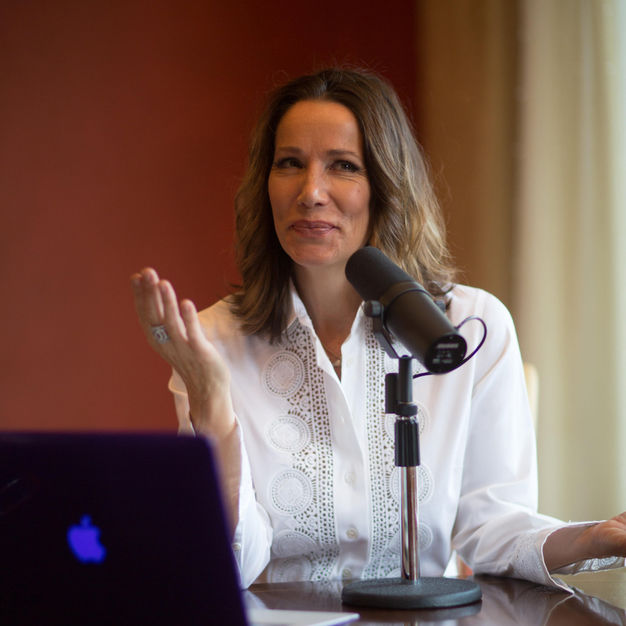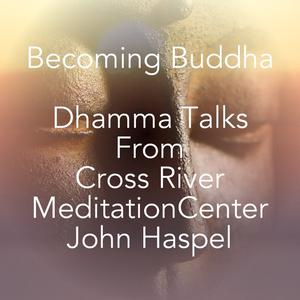
Orlando Insight Meditation Group » Podcast Feed
Peter Carlson
The Orlando Insight Meditation Group is a non-profit organization formed to support the practice of insight (vipassana) meditation in the Orlando area.
- 1 hour 7 minutesDecember 2024 Retreat Review
During this talk, Peter follows a tradition in this community to provide opportunities for those who have recently completed a significant retreat experience to “think out loud” about the retreat. Much of what is experienced during a retreat is not fully integrated without the opportunity to describe the retreat’s routine and any important insights that occurred during the experience. This process supports integrating the practice insights into one’s lifestyle perceptions and meditative skills, as well as informing and inspiring others regarding the benefits of the immersive experience of participating in a residential retreat. This retreat follows on the Dharma talk entitled “Anapanasati 16 Steps Review” that Peter presented on December 11, 2024, just prior to the retreat. Peter quoted excerpts from Analayo’s translation of the Anapanasati Sutta and his book “Mindfulness of Breathing”, taking opportunities to describe how he realized some of the insights described during the retreat. He also described how his extensive self-retreat experience was challenged by recurring back problems, forcing the end of a planned 2 week retreat after 8 days.
2 January 2025, 7:00 pm - 57 minutes 13 secondsDecember 2024 Dharma Questions
During this talk, Peter responds to questions, for example, the difference between concentration and insight, and the relationship between breath awareness and body awareness while practicing mindfulness of breathing meditaiton.
12 December 2024, 9:51 pm - 1 hour 10 secondsAnapanasati 16 Steps Review
This talk provides a review of the Mindfulness of Breathing Discourse, the focus of a recently-completed course Peter participated in that used Analayo’s “Mindfulness of Breathing”. The Anapanasati Sutta is one of the core teachings of Theravada Buddhism and the meetings of the course helped validate some meditative insights emerging from his practice. The 16 steps of the sutta are reviewed and related to an .mp3 recording of the “Guided 16 Step Anapanasati Contemplation” that Peter provided prior to this meeting–it is posted within the “Guided Meditation” page of the website.
Here are the notes prepared for this talk: OVERVIEW OF THE ANAPANASATI SUTTA
Here is Analayo’s translation of the Anapanasati Sutta: Anapanasati Sutta translated by Analayo
5 December 2024, 8:30 pm - 45 minutes 5 secondsGuided 16 Step Anapanasati Contemplation
This Mindfulness of Breathing meditation is intended to support a Dharma talk entitled “Anapanasati 16 Step Review”. It provides a progression of practices beginning with persistent attention to mindfulness of breathing sensations through to the practice of “letting go”.
5 December 2024, 8:01 pm - 49 minutes 34 secondsThanks-Giving As A Contemplation
During this talk, which occurred on Thanksgiving Eve, Peter revises the holiday term Thanksgiving to emphasize the relationship between gratitude (thanks) and generosity (giving). During a guided contemplation entitled “Contemplating Thanks-Giving”, recorded prior to this talk and posted on the website, the characteristic physical and emotional elements of these two wholesome states of mind are described. Participants at the meeting are invited to share their personal experiences of both generosity and gratitude.
30 November 2024, 1:51 am - 44 minutes 53 secondsContemplating Thanks-Giving
This guided meditation revises the holiday of Thanksgiving through focusing on the interaction between gratitude (thanks) and generosity (giving), with emphasis on recognizing the physical and emotional components of gratitude. Participants are invited to reflect on times when they experienced gratitude as a result of another person’s generosity, or through recalling an event when witnessing beauty or some other outstandingly beneficial event. This contemplating is intended to complement the principles and practices described later in the meeting entitled “Thanks-Giving As A Contemplation”, also posted on the website.
30 November 2024, 1:40 am - 1 hour 2 minutesNovember 2024 Dharma Questions
During this meeting, Peter answers questions about Buddhist concepts and provides suggestions regarding meditation practices.
21 November 2024, 9:04 pm - 51 minutes 8 secondsEquanimity
During this talk, Lili reviews her research on the various ways that equanimity importantly factors into the process of Awakening.
Here are the notes prepared for this talk: Equanimity notes
15 November 2024, 2:13 pm - 1 hour 2 minutesThe Art And Science Of Meditation
During this talk, April reviews how the cultivation of mindfulness can be understood as an art form that creates a more beautiful self-experience. This is supported by contemporary research regarding how the hemispheres of the brain interact and how meditation training benefits the art of living.
Here are the notes prepared for this talk: The Art and Science of Meditation
7 November 2024, 2:35 pm - 58 minutes 12 secondsAttachment to Views
The Second Noble Truth describes attachment to views as a primary cause of dukkha, the experience of distress and confusion. During this talk, Peter extends this understanding to review how the current circumstances of life–political divisiveness, the relentless demands of consumerism, and the increasing disruption of earth’s atmosphere–are challenging our views regarding what is considered to be a life well-lived. He suggests how skillful application of the Four Noble Truths concepts and practices that focus on identifying and managing craving and clinging, the primary cause of unwholesome views, can foster effective adaptation to the changing values and beliefs of human culture.
Here are the notes prepared for this talk: Attachment to Views
31 October 2024, 6:15 pm - More Episodes? Get the App
Your feedback is valuable to us. Should you encounter any bugs, glitches, lack of functionality or other problems, please email us on [email protected] or join Moon.FM Telegram Group where you can talk directly to the dev team who are happy to answer any queries.
 Sutta Readings
Sutta Readings
 MaryanneLive! Radio Show
MaryanneLive! Radio Show
 Tisarana Buddhist Monastery
Tisarana Buddhist Monastery
 Dharma Insight | Insight Meditation Community of Charlottesville
Dharma Insight | Insight Meditation Community of Charlottesville
 Seattle Insight Meditation Society
Seattle Insight Meditation Society
 Becoming Buddha Cross River Meditation Center Podcast
Becoming Buddha Cross River Meditation Center Podcast